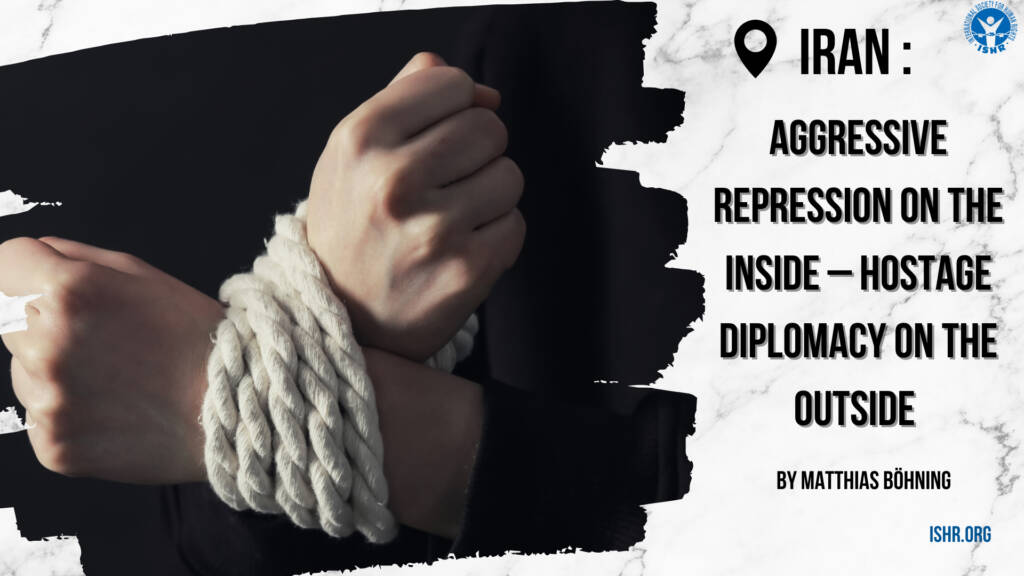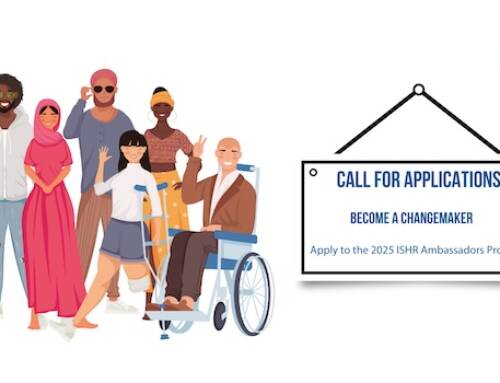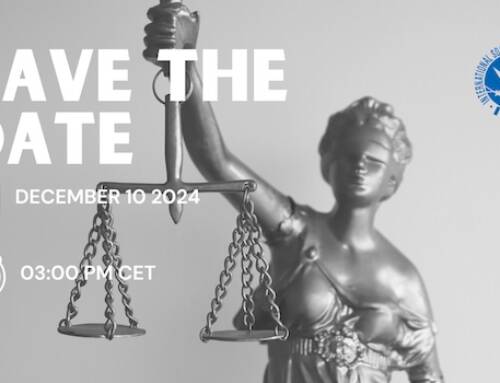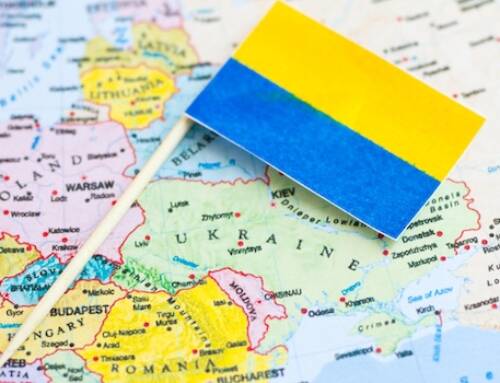Iran


Iran: Aggressive repression on the inside – hostage diplomacy on the outside
Averting fates through political sponsorships
“My mother is a German citizen and is being used by the Islamist mullah regime as a bargaining chip to exert pressure on Germany,” said Mariam Claren, daughter of Cologne architect Nahid Taghavi, in her passionate appeal to the German ISHR chapter’s annual meeting in Bonn in April. The German-Iranian Taghavi campaigned for women’s rights and freedom of expression in Iran until the dictatorship cruelly stopped her: After visiting her brothers, she was arrested in her flat in Tehran on 16 October 2020 under the pretext of “endangering security” and taken to Tehran’s notorious Evin Prison. For the first twelve days, Mariam Claren received no sign of life from her mother, but she did not give up and has been fighting for her ever since, with infectious energy. She knows that public pressure is the only way to get things moving.
But she experienced repeated setbacks: On 4 August 2021, Nahid Taghavi was sentenced to ten years and eight months in prison for “membership of an illegal group” and “propaganda against the regime”. She was denied consular assistance. Since then, she has taken two steps forward and one step back: “My mother was on medical leave this February due to her health condition – thanks to the media attention and thanks to the non-governmental organisations that campaigned for her,” she continued. She was transferred to her flat in Tehran and fitted with an electronic ankle tag. But the reprieve did not last long: The theocratic dictatorship was once again looking for leverage to extract concessions: The mullahs do not like the fact that the United Nations has rightly set up a fact-finding mission on human rights violations in Iran, which recently came to the conclusion that the regime in Tehran is committing crimes against humanity against its own people. German Federal Foreign Minister Annalena Baerbock spoke out in favour of extending this mission. “One day later, my mother had to go back to prison,” reported Claren.
“This is by no means an isolated case,” she summarised her mother’s fate. She recommends defying the regime in Tehran – and thus following the example of the population in Iran. Unimpressed by the increasingly harsh reprisals against women and members of ethnic minorities as well as dissidents, people are gathering on the streets to protest; many are even prepared to sacrifice their lives to defend human rights.
ISHR is also concerned about the fate of the Swedish-Iranian doctor Ahmadreza Jalali. The researcher was arrested on 26 April 2016 when he visited Iran on an academic trip at the invitation of the universities of Tehran and Shiraz. Two weeks after his arrest, he was charged with espionage and collaboration with Israel. This accusation has already been levelled against numerous people in the past, although in many cases there was no evidence. He was sentenced to death in October 2017. In a letter dated 25 April 2024, fifteen former Iranian hostages (prisoners with dual citizenship) made a critical appeal to the Swedish government to work effectively for his release.
At ISHR, we are convinced that only public attention will spur diplomats to make the needed effort that will save lives. We receive a great deal of support towards this goal from political figures who use their reputational weight to campaign for the freedom of the person in custody. They contact the media and the embassy directly and ask questions about political imprisonment. In the past, the commitment of politicians has led to considerable improvements for the vast majority of prisoners, such as the mitigation of their sentence or even their release. The political sponsorship programme of the ISHR’s German section is constantly growing. The related expenditures for research, translations, maintaining contacts and accompanying media work are considerable. Thus, any form of support is highly appreciated.





